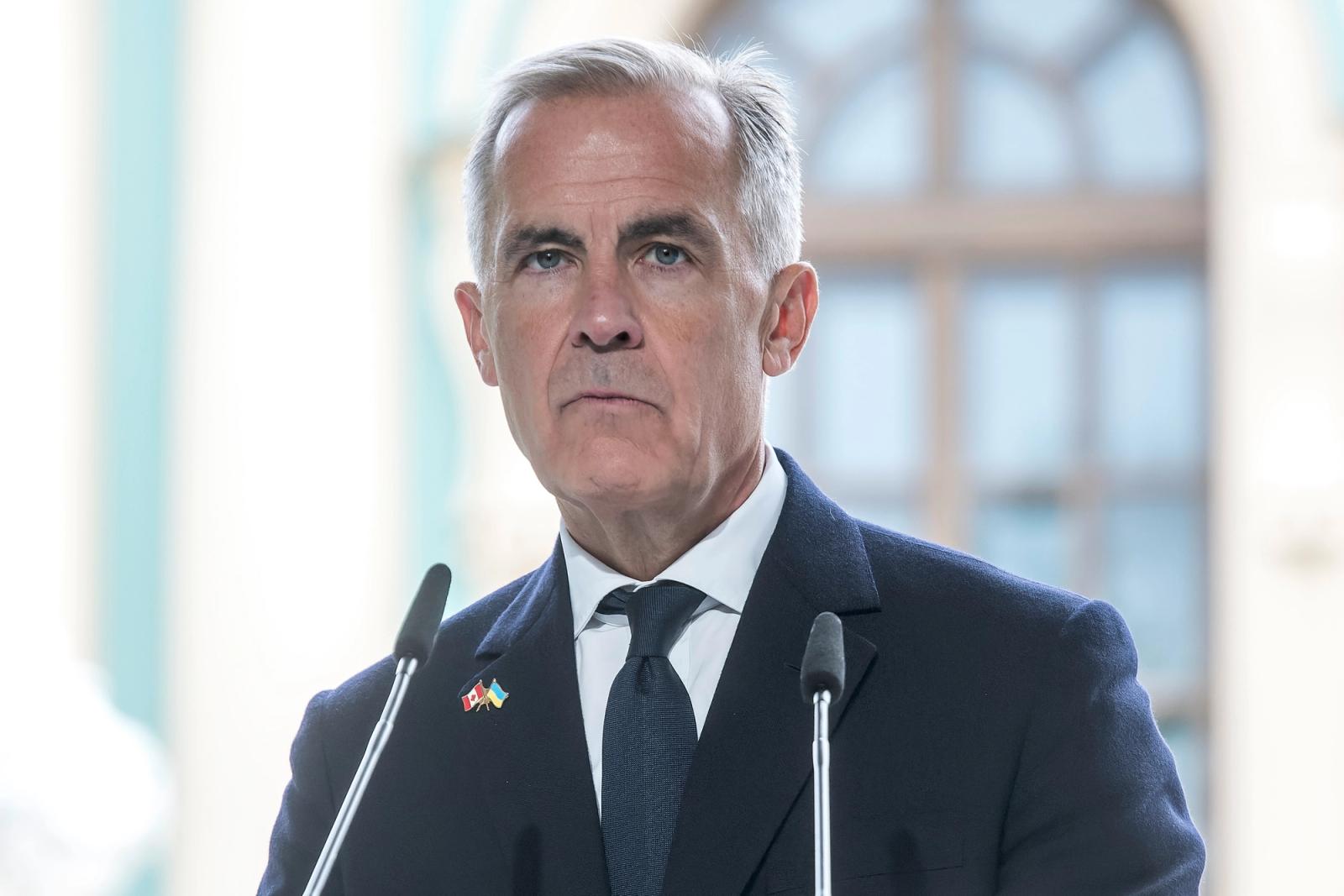The Topline
- Last week, Prime Minister Mark Carney signed a memorandum of understanding that would kick-start a process to build a new oil and gas pipeline through northern B.C.
- Under the agreement, the federal government could scrap the carbon emissions cap – introduced by Justin Trudeau's government in November 2024 – despite Carney claiming during the 2025 election campaign that he would likely keep it
- Carney previously announced that a new liquified natural gas (LNG) export facility will be fast-tracked for approval by the country’s new Major Projects Office
- Prior to becoming prime minister, Carney had built his reputation as a global climate leader, warning that fossil fuel reserves were “stranded assets”
- Editor's note: This story has been updated and revised from an earlier version
Switch sides,
back and forth
Talking out of both sides of his mouth
There once was a time when Mark Carney lectured the world on “unburnable” carbon , scolding CEOs that fossil fuels were a bad bet in a shifting economic and regulatory landscape.
Well hidey ho, look who’s making carbon a cornerstone of his national projects agenda. It’s not much of a surprise, either. At the end of the day, Carney is a businessman first. The dollar talks, and everything else comes after.
First, he killed the consumer-facing carbon price, which was terrible optics out of the gate for a climate-friendly political newbie announcing himself as a new prime minister. It was a popular move with Canadians, but it's still questionable policy.
The fuel charge gave individuals a first-hand glimpse of the costs associated with burning fossil fuels. Those eligible saw one price on your heating bill, then they saw a rebate cheque roll in. It showed that by cutting personal emissions, you could save money. It was the one mechanism that ordinary Canadians could see working. But now it’s baby, bye bye bye.
Now, he's agreed to drop the cap on oil and gas emissions if the new pipeline is built through northern B.C. He says this is in order to prioritize the economy – and that's fair – but our ecology doesn't really care about our economy. Even his environment minister resigned over the plan.
Granted, there's no guarantee that this pipeline even gets built, yet the optics for a man who's staked his reputation on his climate stance are...not good. It would be one thing if Carney had never claimed to be a climate crusader, but he built his brand on being the adult in the increasingly warming room.
This reads as a capitulation to Alberta voters, or the oil and gas lobby, or both, and feels like a betrayal to his environmentally conscious supporters. He's waving through fossil fuel infrastructure that locks in emissions for decades. All in the name of “national interest.”
You know what’s also in the national interest? Ensuring our grandkids are able to breathe the same clean air that we had growing up. You know what else? Sustaining all life on this already-warming planet.
The International Court of Justice recently stated that nations could face legal liability for failing to curb fossil production. And what does Carney do? He approves the enabling of even more of it. Eek.
Concessions are the political reality
The inconvenient truth is that Carney needs to oversee a province that runs on oil royalties. He's learning what Rachel Notley, the former NDP premier of Alberta, learned the hard way – that it's easy to be relentlessly pro-climate when you're not responsible for governing.
Now, Carney has the economy to worry about. It was, in fact, the whole promise of his campaign. And unfortunately – or fortunately, depending on how you look at it – concessions do need to be made, environmental and otherwise.
Carney’s environmental policy is clearly strategic – compromise enough to keep climate policy alive federally, while tightening the screws on industry. A pragmatic approach is necessary, because if this climate plan fails all together, it could be replaced by a climate-denying down the line.
And while the consumer carbon tax was good policy, Canadians hated it and the Conservatives feasted on it. Carney scrapped to save the rest of the climate agenda from going down with it. It’s like amputating a limb to save the rest of the body.
Meanwhile, industrial pricing remains in place across Canada, and Carney's also also pledged to increase the industrial carbon pricing in Alberta through the MOU. He's shifting the burden off individuals and on to industry, which is where most of the emissions are coming from, anyway.
It’s all a delicate balance – the political reality needs to meet the economic and environmental one. Carney is using the oil and gas cap negotiations as a political bargaining chip, since Alberta’s economy, and by extension, much of Canada’s, still relies heavily on the oil sands.
Carney campaigned on a promise to stabilize the Canadian economy, while moving toward a greener one at the same time. Neither will happen overnight, and concessions do need to be made in order to reach the economic sovereignty the Liberals had been talking about in recent months.
The pipelines and LNG projects are part of this – they’re essentially an insurance policy in the face of U.S. tariffs and its weaponization of energy trade. Securing export routes is a national security issue.
In July, Carney’s government released its roadmap for decarbonization of the oil and gas sector – a plan to “protect the planet for future generations and to enhance the short and long-term competitiveness of the industry.”
It details measures to improve oil and gas production efficiency, control methane emissions and deploy industry-wide carbon capture technology, among other innovations.
In other words, cleaner fossil exports today buys time to scale renewables tomorrow.

